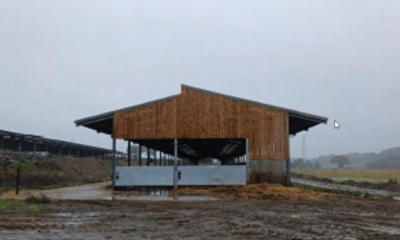News
National review urges reform of Welsh Fire and Rescue Authorities

A MAJOR new report has highlighted significant weaknesses in the governance of Wales’ Fire and Rescue Authorities (FRAs), calling for urgent action from the Welsh Government to address long-standing concerns. The Auditor General for Wales has criticised the current governance structures as lacking the necessary expertise and oversight required to manage the vital emergency services these authorities provide.
Fire and Rescue Authorities, which are responsible for fire-fighting, promoting fire safety, and responding to road traffic accidents, play a critical role in protecting Welsh communities. However, the Auditor General’s review warns that the system designed to govern these authorities is not fit for purpose, raising concerns over accountability and effectiveness.
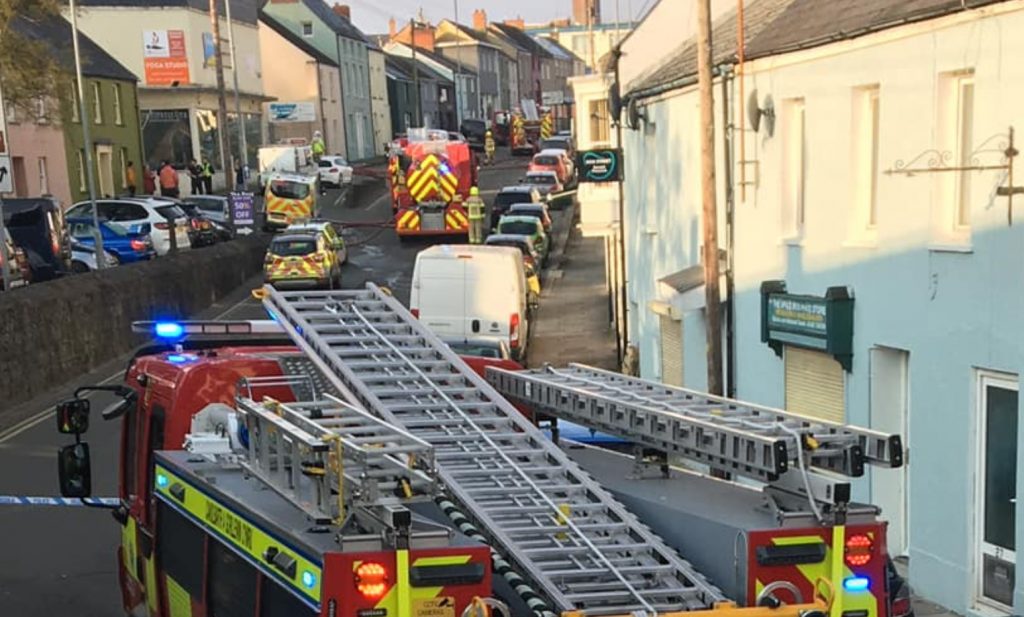
What do councillors know about fire fighting?
One of the key findings of the report is that the current governance model for FRAs, which relies exclusively on councillors nominated by their local authorities, is not aligned with the specialist nature of fire and rescue services. Members of FRAs are drawn from local councils, often with little or no prior experience in fire and rescue, meaning they lack the technical knowledge required to make informed decisions on crucial public safety matters.
“Fire and Rescue Authorities provide vital services, and it’s important that they are governed in a manner reflecting the public and environment they serve,” said Adrian Crompton, the Auditor General for Wales. He urged the Welsh Government and the FRAs themselves to address these governance weaknesses and ensure that the people tasked with overseeing these services are properly equipped for the job.
The report highlights that while elected councillors provide important community representation, this does not guarantee the specific skills needed for governing such specialised services. As a result, there is a significant gap in knowledge and experience that poses a risk to the effective oversight of fire and rescue services across Wales.

Limited training and short-termism of positions
The review also revealed that many FRA members do not receive sufficient training to help bridge this knowledge gap. Of the three FRAs in Wales—North Wales, South Wales, and Mid & West Wales—only the latter provides a structured programme of training and development for its members. Elsewhere, training is sporadic and not consistently aligned with members’ individual needs, leaving many unprepared for the responsibilities they face.
In addition, the high turnover of FRA members, with frequent changes in membership due to local elections, further complicates the situation. The report found that this constant churn of councillors prevents the development of long-term expertise within the FRAs, making it difficult to maintain a knowledgeable and engaged governing body.
“Governance requires stability, expertise, and a clear understanding of roles and responsibilities,” the report states. However, the review found that in practice, many members did not demonstrate a clear understanding of their governance duties, further weakening the effectiveness of decision-making processes.
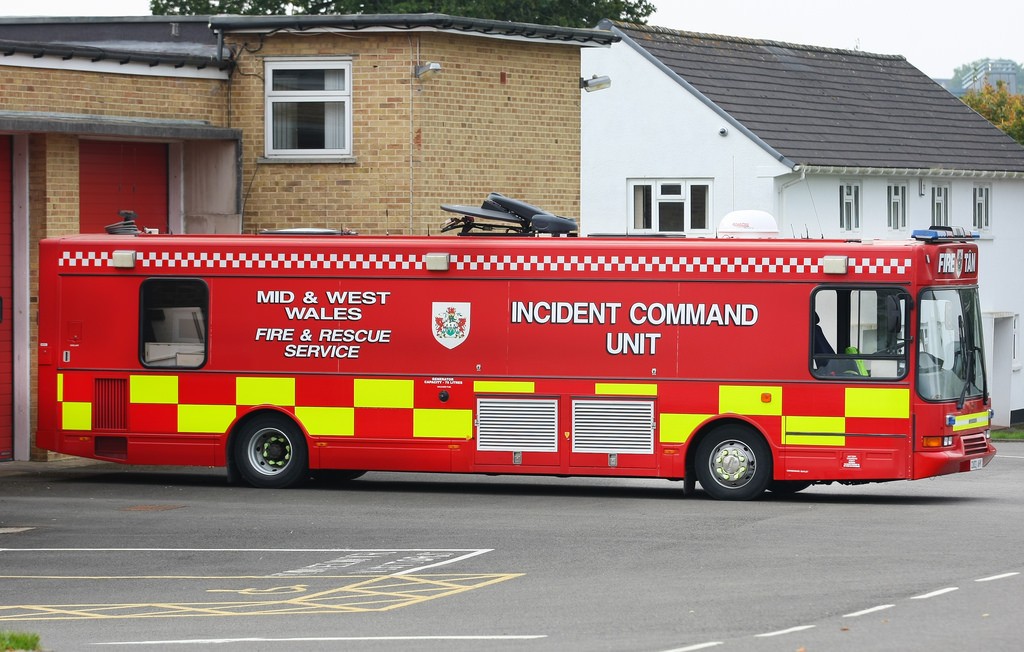
Lack of scrutiny and accountability
Another significant concern raised in the report is the lack of rigorous scrutiny and challenge within FRA governance structures. The review found that in many committee meetings, there was minimal questioning or discussion on important matters, including strategic risk management and performance oversight. This raises fears that decisions are being made without sufficient scrutiny, potentially putting public safety at risk.
The Auditor General also expressed concerns over the lack of diversity among FRA members, with the majority being male and few representatives from ethnic minority backgrounds. This lack of diversity, the report argues, reduces the ability of FRAs to reflect the communities they serve and engage with a broad range of perspectives on public safety issues.
The report further criticises the absence of regular evaluations of individual FRA members’ contributions, meaning there is no mechanism to assess whether members are fulfilling their roles effectively. This, coupled with the lack of structured training, results in a governance system that is not fully accountable to the public.

Urgent calls for reform
This is not the first time Welsh FRAs have faced calls for reform. In 2018, the Welsh Government’s White Paper on FRA governance recommended reducing the number of elected councillors in favour of appointing non-executive members with specialist expertise in fire and rescue. However, these proposals were never implemented, leaving the current governance structures largely unchanged.
The Auditor General’s report echoes these earlier recommendations, urging the Welsh Government to revisit its governance model. It calls for a membership structure that better reflects the technical and operational demands of fire and rescue services, ensuring that those tasked with overseeing these services have the necessary skills and knowledge.
In particular, the report recommends that the Welsh Government conduct a comprehensive review of FRA governance to introduce clearer accountability mechanisms and improve the training and development available to members. This would include regular assessments of members’ skills and contributions, as well as a more formal approach to succession planning within the FRAs.
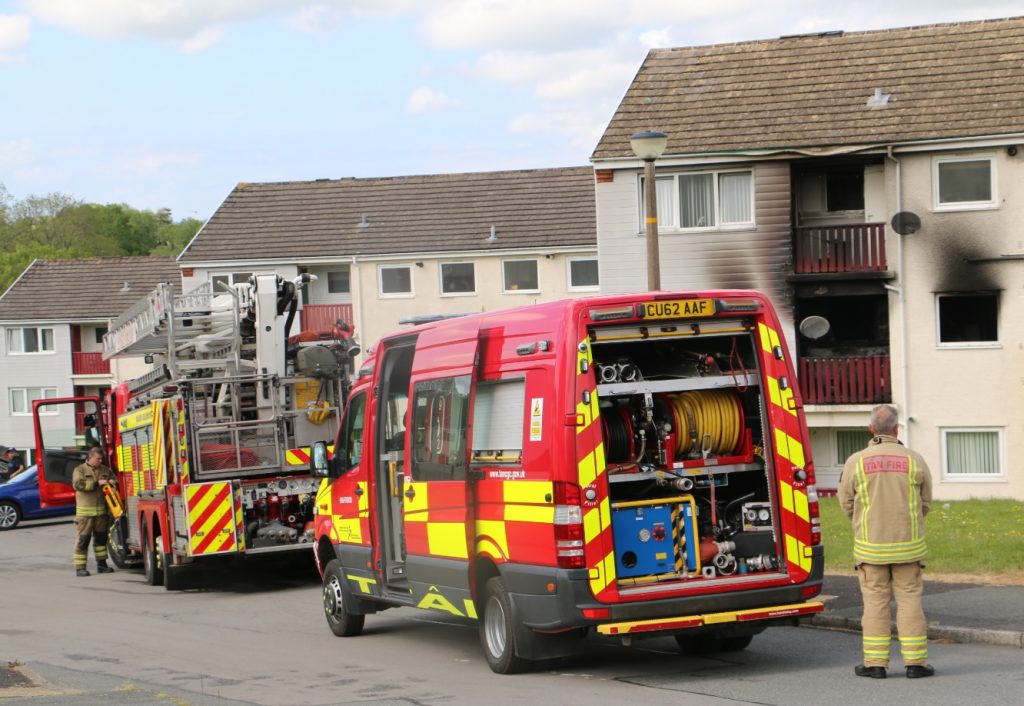
Financial pressures not helping
The need for reform is made all the more urgent by the financial pressures facing the public sector. The combined budget of the three Welsh FRAs for 2024-25 is approximately £200 million, equating to £64 per head of the population. With such significant sums of money at stake, ensuring these funds are managed effectively is crucial, particularly in the current economic climate.
The report warns that the lack of robust governance could undermine the ability of FRAs to deliver value for money, with public safety potentially being compromised as a result. It emphasises that strong governance is essential for effective decision-making and the delivery of high-quality services, particularly in times of financial austerity.
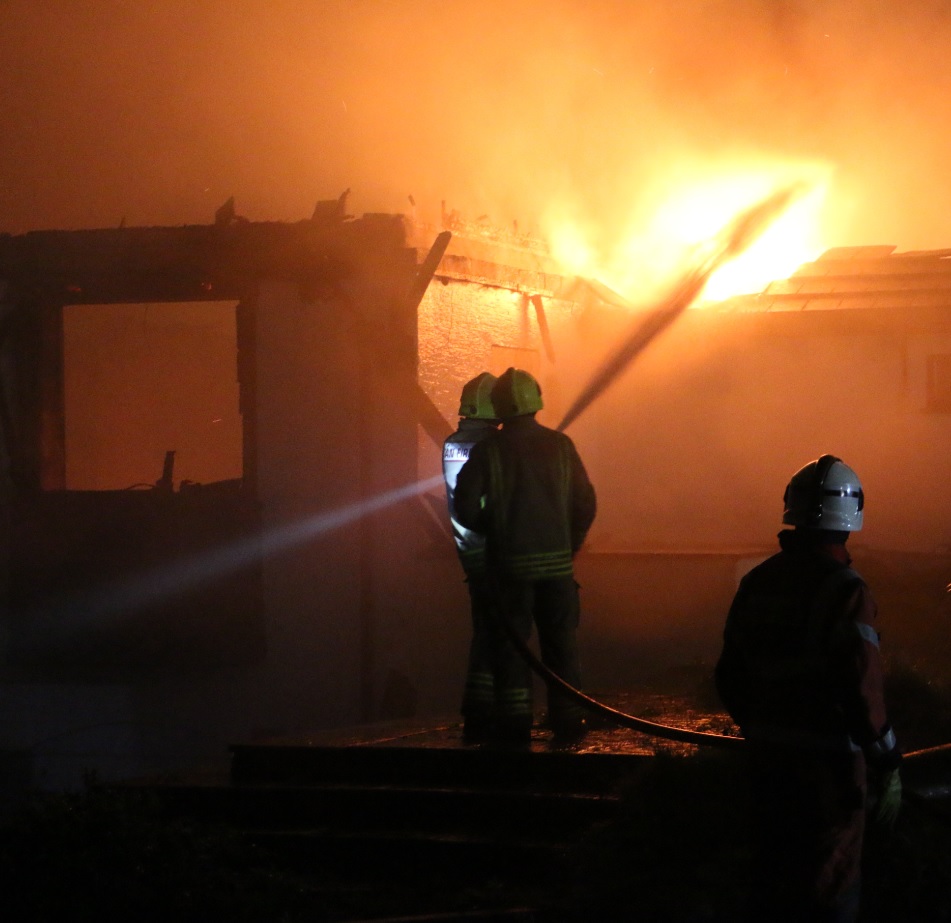
A long road ahead
The findings of the Auditor General’s review have put the Welsh Government under pressure to act swiftly. The issues identified are not new, but the report makes clear that the need for change is more pressing than ever. As public sector budgets tighten, and the complexity of fire and rescue services increases, the risks posed by inadequate governance structures could have serious consequences for communities across Wales.
Whether the Welsh Government will heed the Auditor General’s call for reform remains to be seen. However, the message from the report is clear: without action, the governance of Wales’ Fire and Rescue Authorities will continue to fall short of what is required to keep the public safe and ensure effective management of these essential services.
In the meantime, the public will be watching closely to see if the necessary reforms are put in place to address the serious issues raised in the report and ensure that Wales’ Fire and Rescue Authorities are governed with the expertise and accountability they deserve.
Responding, Joel James MS, Shadow Minister for Social Partnership, said: “It’s vital that those who form FRAs have the necessary skills and knowledge to maintain a high standard of service management.
“We’d encourage the Welsh Government to be led by this report and ensure that expertise can be retained in fire service governance.”
News
Prince William faces diplomatic tightrope on first Saudi Arabia visit

Energy, trade and human rights concerns collide as UK deploys monarchy’s ‘soft power’
PRINCE WILLIAM will step into one of the most politically sensitive overseas trips of his public life this week as he travels to Saudi Arabia at the request of the UK Government.
Unlike recent royal visits to Estonia, Poland or South Africa, this tour carries significant diplomatic weight, placing the Prince of Wales at the centre of a complex balancing act between strengthening economic ties and confronting a deeply controversial human rights record.
Sources close to the Palace say William “didn’t flinch” when asked to go, viewing such duties as part of his responsibility as heir to the throne.
But Saudi Arabia presents challenges unlike almost anywhere else on the royal calendar.
A country in transition
The visit will focus on energy transition and young people, two areas the kingdom is promoting heavily as it attempts to diversify its oil-dependent economy.
In recent years Saudi Arabia has staged major sporting and cultural events, including Formula One races, international film festivals and high-profile entertainment shows. The country will also host the men’s football World Cup in 2034.
Officials argue this signals modernisation and openness.
Critics say it is “sportswashing” — using global events to distract from repression.
Human rights organisations including Amnesty International continue to raise concerns over restrictions on free speech, criminalisation of same-sex relationships and harsh penalties for dissent.
While reforms have allowed women to drive and increased participation in public life, significant legal and social limits remain.
Meeting a controversial leader
Central to the trip will be talks with Mohammed bin Salman, widely known as MBS, the kingdom’s de facto ruler.
The crown prince is credited with pushing economic reforms but remains internationally divisive.
A US intelligence report concluded he approved the 2018 killing of journalist Jamal Khashoggi inside the Saudi consulate in Istanbul — an allegation he denies and Saudi Arabia rejects.
Whether William raises such issues privately is unlikely to be disclosed. Kensington Palace does not comment on confidential conversations.
However, the prince will be briefed extensively by the Foreign Office and the British Embassy before any meetings.
Soft power diplomacy
Government insiders describe William as a key diplomatic asset.
One source said the monarchy acts as a “secret weapon”, able to open doors politicians sometimes cannot.
This form of so-called soft power has long been part of the Royal Family’s overseas role — building relationships first, leaving governments to handle the harder negotiations.
Dr Neil Quilliam of Chatham House says Saudi leaders value high-level recognition from Britain.
“Deploying Prince William sends a signal that the UK takes the relationship seriously,” he said.
Energy cooperation and investment are expected to dominate talks, particularly as Britain seeks new partners during the global shift away from fossil fuels.
Echoes of the past
The visit also reflects longstanding links between the two royal families.
King Charles III has travelled to Saudi Arabia numerous times over the decades and is said to maintain warm relations with senior figures there.
William is now expected to assume a more prominent global role as he prepares for future kingship.
A delicate balancing act
For many observers, images of handshakes between William and MBS will be uncomfortable.
Yet world leaders continue to engage with Riyadh, citing its strategic and economic importance.
The prince’s task is unlikely to involve grand statements. Instead, it will be quiet diplomacy — maintaining dialogue while representing British values.
It is a careful, sometimes uneasy role.
But it is one the monarchy has long performed: building bridges in places where politics alone struggles to tread.
Community
Ice rink campaign launched for Pembrokeshire

Survey underway as resident explores sites and funding for year-round skating facility
PLANS to bring a permanent ice skating rink to Pembrokeshire are gathering momentum after a local resident began talks with council officers and launched a public survey to test demand.

Jemma Davies, from Newgale, says the county is missing out on a major leisure attraction that could benefit families, schools and visitors while creating new jobs.
At present, the nearest full-time rink for Pembrokeshire residents is in Cardiff — a round trip of several hours — making regular skating sessions difficult for many families.
She believes a local facility could change that.
“I think it would give people something completely different to do here,” she said. “It’s exercise, it’s social, and it’s something children could take up after school instead of having to travel out of the county.”
Early talks with council
Jemma has already met officers from Pembrokeshire County Council’s sport and recreation department to discuss whether the idea could be viable.
She is also hoping to approach Sport Wales to explore possible funding streams and support.
To measure interest, she has set up an online questionnaire asking residents whether they would use an ice rink and how far they would be willing to travel.
She said early responses have been positive, with families, young people and skating enthusiasts backing the idea.
Reusing empty buildings
Rather than constructing a new arena, Jemma is investigating whether vacant premises could be converted, reducing costs.
Potential options include a former retail unit in Haverfordwest or a large hangar-style building near existing leisure attractions.
She said: “If we can reuse a building that’s already there, it keeps the costs down and brings life back into empty spaces at the same time.”
As part of her research, she plans to visit Vindico Arena to better understand the practicalities of running a rink.
More than just skating
Beyond public sessions, she believes a rink could host school trips, birthday parties, events and competitions, while encouraging young people to take up winter sports.
“Pembrokeshire has produced plenty of sporting talent over the years,” she said. “There’s no reason we couldn’t develop figure skaters or ice hockey players here too.”
Residents who want to share their views can complete the online survey.
Cover image:
Jemma Davies: Hopes to bring a permanent ice rink to Pembrokeshire (Pic: Supplied).
Cymraeg
Moonpig’s Welsh fail still on sale as mistranslated St David’s Day card sparks laughs

A GREETING card meant to celebrate St David’s Day has become an accidental comedy hit after shoppers spotted its Welsh message makes absolutely no sense – and, even better, it is still on sale.
The card, sold by online retailer Moonpig, reads: “Hapus Dewi Sant Dydd.”
Unfortunately for the designers, that translates back into something closer to “Happy David Saint Day” or “Day Saint David Happy” rather than the correct Welsh phrase, “Dydd Dewi Sant Hapus.”
In other words, the words are right – just in completely the wrong order.
The mistake was first highlighted by Nation.Cymru, prompting plenty of amusement online, with some joking it looked like the result of a lazy copy-and-paste from an automatic translator.
The Herald decided to check for itself.
And yes – as of today – the card is still live and available to buy on Moonpig’s website.
Customers can personalise it and add it to their basket just like any other design, with no sign the message has been corrected.
One reader joked: “It’s like they put the words in a hat and picked them out at random.”
Another described it as “peak AI Welsh”.
For Welsh speakers, the error is immediately obvious. Welsh sentence structure differs from English, so simply translating each word individually rarely works. It’s the linguistic equivalent of writing “Birthday happy you” on a cake.
There was also online chatter that the dragon artwork may be facing the wrong direction – though by that point, the language had already stolen the show.
With St David’s Day cards meant to celebrate Welsh culture, the gaffe feels particularly ironic.
Still, if you fancy a collector’s item or a bit of office wall décor, you might want to be quick. Once someone at Moonpig finally runs it past an actual Welsh person, this one could quietly disappear.
Photo caption: The mistranslated St David’s Day card still available for sale on the Moonpig website (Pic: Moonpig).
-

 Health3 days ago
Health3 days agoHealth board targets rise in steroid and gym drug use across west Wales
-

 Crime4 days ago
Crime4 days agoSex offender jailed after living off grid in Pembrokeshire and refusing to register
-

 News6 days ago
News6 days agoPrincess of Wales visits historic Pembrokeshire woollen mill
-

 Crime4 days ago
Crime4 days agoTeacher injured and teenager arrested for attempted murder at Milford Haven School
-

 Crime6 days ago
Crime6 days agoHakin man’s appeal delayed again as Crown Court seeks guidance on insurance law
-

 Crime6 days ago
Crime6 days agoArrest made after Carmarthen park stabbing investigation
-

 Crime6 days ago
Crime6 days agoMan guilty of threatening to kill Herald editor
-

 Business2 days ago
Business2 days agoSix-figure negligence victory leaves retired builder trapped in divorce limbo







